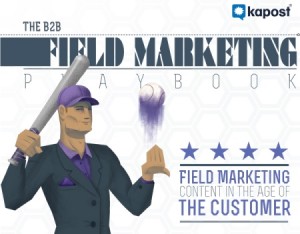In a world where buyers have more choice than ever, it is increasingly important to develop meaningful business relationships with the right people. Your target audience wants to feel that you genuinely care about their specific needs and problems; they want to be treated like individuals rather than a mass market.
Therefore, when it comes to B2B email marketing, you need to carry out personalisation. This is what HubSpot says about this practice: “Personalisation is the practice of implementing tokens within your content (emails, landing pages, or website pages) to better engage with your audience and provide a personalized experience to a known contact. With this practice, you show your audience better engagement, making them feel special since their experience is personalized by a company who is looking to fulfill their service or product need. Such an experience makes a difference in how your audience perceives you and your company.”
But can personalisation really make a difference to the number of sales you achieve? According to research by VentureBeat, “over 90 percent of marketers see at least nominal, if not outright impressive, increases in open and click-through rates when employing some form of personalisation”. So here are three great reasons to personalize your B2B email marketing messages.
1. It creates a human touch
This can sound a little cheesy but it’s true – you are much more likely to evoke a response from people if you address them by their name in an email. Similarly, it’s better to sign off with your own name rather than your organization’s name.
Just because you’re interacting online doesn’t mean you have to behave like a robot. In fact, the rise in faceless communication means that it’s even more vital to create a human touch. It shows that you have a real interest in your recipients and, importantly, that there’s an actual person on the other side of the screen. It can be incredibly alienating to do business with a company that hides behind its corporate branding; by contrast, showing who you really are helps to build trust.
2. Personalisation adds relevance
If you have a database of 10,000 contacts, those people are going to be vastly different in a number of ways. So they won’t all want to receive the same email messages, in the same format, at the same time.
Clearly, you can’t send a uniquely tailored email to every one of your contacts. However, there will be groups of contacts that have similar interests, so you can segment your database accordingly. For instance, you might separate contacts according to industry or job title, or where they are in the buyer’s journey.
In this way, your email recipients will receive content that is relevant to them. For example, if someone has just downloaded one of your eBooks, you might send them a series of follow-up blog posts. Or you might send out the same email to several groups of contacts, but tweak certain parts of the copy to make it industry specific.
3. It creates long-lasting relationships
The end result of personalizing your B2B email marketing messages is stronger connections with your target audience – and, ultimately, more sales. People expect the marketing messages they receive from you to be consistent and relevant so that they can feel assured they are making a good decision when doing business with your company.
On the other hand, there’s a fine line between an authentic experience and a creepy one. You don’t want to get overly personal – after all, this is a business relationship. So using someone’s name is fine, but directly referring to their recent activity across your website is probably overstepping the mark.
Personalisation is about better meeting the needs of the people who will benefit from your product or service. For your prospects, it’s the difference between buying a standard dress or suit off the rack, and having the item of clothing tailored to exactly fit their body. So address them by name, send them relevant content and nurture the relationship.
Digital & Social Articles on Business 2 Community(45)






